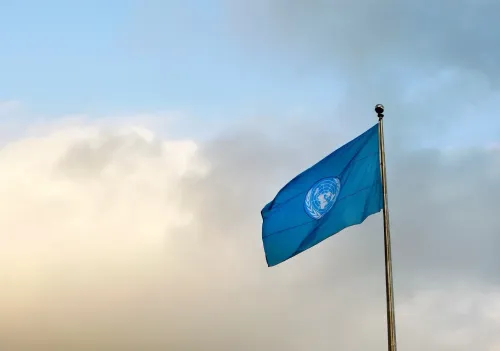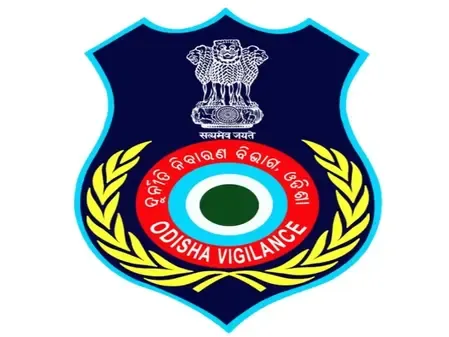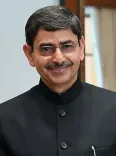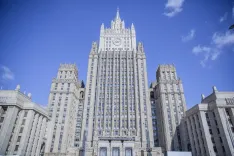Amit Shah Unveils 'Indian Renaissance: The Modi Decade'
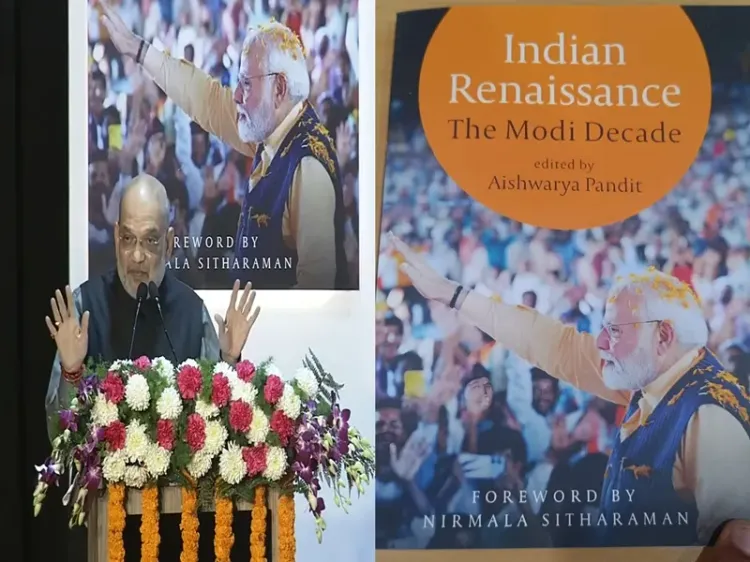
Synopsis
Key Takeaways
- Launch of the book titled 'Indian Renaissance: The Modi Decade'.
- Recognition of PM Modi's decade-long governance.
- Significant reforms across multiple sectors.
- Ambitious goals set for India by 2047.
- International recognition of PM Modi's leadership.
New Delhi, Jan 30 (NationPress) Union Home Minister and Cooperation Minister Amit Shah officially launched the 'Indian Renaissance: The Modi Decade' book in the nation's capital on Thursday.
Present at the event were Union Minister for Housing and Urban Affairs Manohar Lal, Rajya Sabha MP Kartikeya Sharma, the book's editor Aishwarya Pandit, and a host of other esteemed figures.
Shah remarked that the past decade under Prime Minister Narendra Modi has signified the conclusion of an old chapter and the dawn of a new one.
He stressed that when India's history is revisited, even PM Modi's most ardent critics will recognize these ten years as golden.
He pointed out that in 2014, India stepped into a new chapter, receiving a stable government after a span of thirty years, leading to progress across the nation.
Shah noted that this transformation has been interpreted in various manners, with one foreign publication stating that while India became independent on August 15, 1947, it was under PM Modi's leadership in 2014 that the country genuinely liberated itself from colonial legacies.
He remarked that India gained freedom from prolonged colonial oppression on August 15, 1947.
He further underscored that India stands as one of the world's most ancient civilizations, recognized for its openness—be it in adopting new ideas, welcoming foreign nationals, or embracing multiple languages.
Shah highlighted that India is the sole nation globally that has accommodated numerous civilizations, adapted its traditions, and continued its journey while retaining its core identity.
He emphasized that India uniquely sustains a multitude of languages, cultures, dialects, and religions, all coexisting harmoniously while advancing collectively as a nation.
Meanwhile, Aishwarya Pandit, the book's editor, mentioned in a media interaction, “If you observe closely, you will notice transformation... I endeavored to document the changes that have unfolded over the past decade. We also examined the influence of digitization on the average household.”
Home Minister Amit Shah added that under Prime Minister Narendra Modi's guidance, numerous reforms have been enacted across different sectors, propelling overall growth. He pointed out that the scale and magnitude of every sector have notably expanded.
Shah emphasized that it was unimaginable that during the world's largest pandemic, Covid-19, India would navigate the crisis with such efficiency.
Thanks to technology, the nation successfully vaccinated its 1.3 billion citizens and provided vaccination certificates without a hitch, he mentioned.
He also noted that India was among the first to develop a Covid-19 vaccine and supplied it to over 100 countries.
Amit Shah, a former BJP chief, predicted that future historians will categorize India's history into three distinct eras: “India before Independence and after Independence”, “India before Emergency and after Emergency”, and “India before PM Modi and after PM Modi.”
He stated that when a leader steers his nation with dedication, integrity, and foresight, his contributions cannot be overlooked.
Union Minister Shah pointed out that during the 25th and 50th anniversaries of India's independence, events were mainly conducted in schools, panchayats, and government facilities, with resolutions passed in Legislative Assemblies and Parliament.
However, the 75th anniversary of Independence witnessed a grander celebration, with over 800,000 events organized despite the challenges posed by the Covid-19 pandemic.
He credited PM Modi for ensuring that the younger generation learns about the freedom struggle from 1857 to 1947 and that the unsung heroes of independence receive well-deserved recognition.
He added that PM Modi has motivated the nation to take pride in its accomplishments over the past 75 years and has inspired citizens to commit to transforming India into a fully developed nation by August 15, 2047.
Union Minister Shah affirmed that PM Modi has established a clear objective for India to evolve into a fully developed nation by 2047.
He expressed that what commenced as the Prime Minister's vision has now morphed into the collective aspiration of 1.3 billion Indians.
He expressed confidence that India's youth will be the driving force behind propelling the country to become the leading global power by 2047, adding that PM Modi understands that if every Indian takes a step forward, the nation will progress by 1.3 billion steps.
Reflecting on the Covid-19 pandemic, Shah recalled how the entire nation adhered to PM Modi's call for a 'Janta Curfew' and remained indoors. He likened this response to the public's reaction to former Prime Minister Lal Bahadur Shastri's appeal for fasting, indicating that this was a unique instance where citizens wholeheartedly followed a leader's request.
Union Home Minister Shah remarked that to genuinely comprehend PM Modi's journey, one must look beyond his tenure from 2001 to 2025 and consider his 40 years of service prior to that.
He depicted PM Modi as someone who has consistently prioritized the welfare of others and has never misappropriated public resources for personal gain.
He commended PM Modi for instituting bold reforms and making challenging decisions that the populace has consistently supported, resulting in his repeated electoral victories.
Shah noted that the last ten years of PM Modi's leadership have laid the groundwork for India's next 25 years, termed “Amrit Kaal”.
The Union Home Minister highlighted various welfare initiatives, such as providing housing to 600 million underprivileged individuals, gas connections, toilets, drinking water, free medical treatment up to Rs 500,000, and five kilograms of free food grains, among other benefits.
He credited PM Modi with initiating a revolutionary transformation in both Gujarat and Delhi.
Union Home Minister Shah asserted that PM Modi's achievements have garnered international recognition.
He further mentioned that PM Modi is the only global leader today who has received the highest civilian honors from 16 different nations.
Shah compared PM Modi to Mahatma Gandhi, stating that after the Father of the Nation, PM Modi is the only leader to have prioritized cleanliness on a national level, ensuring the construction of toilets for 130 million households.
Reflecting on the nation's advancement over the last decade, he noted that a decade ago, India's governance was characterized by policy paralysis, whereas today it is marked by a “politics of performance”.
He expressed confidence that by 2047, India will be fully developed, will command the global stage, and retain its rich cultural and national identity.


